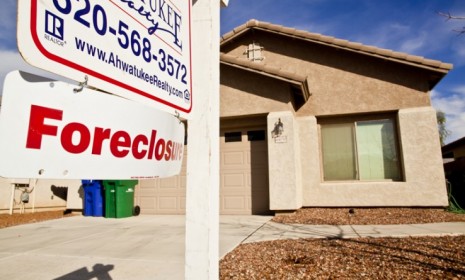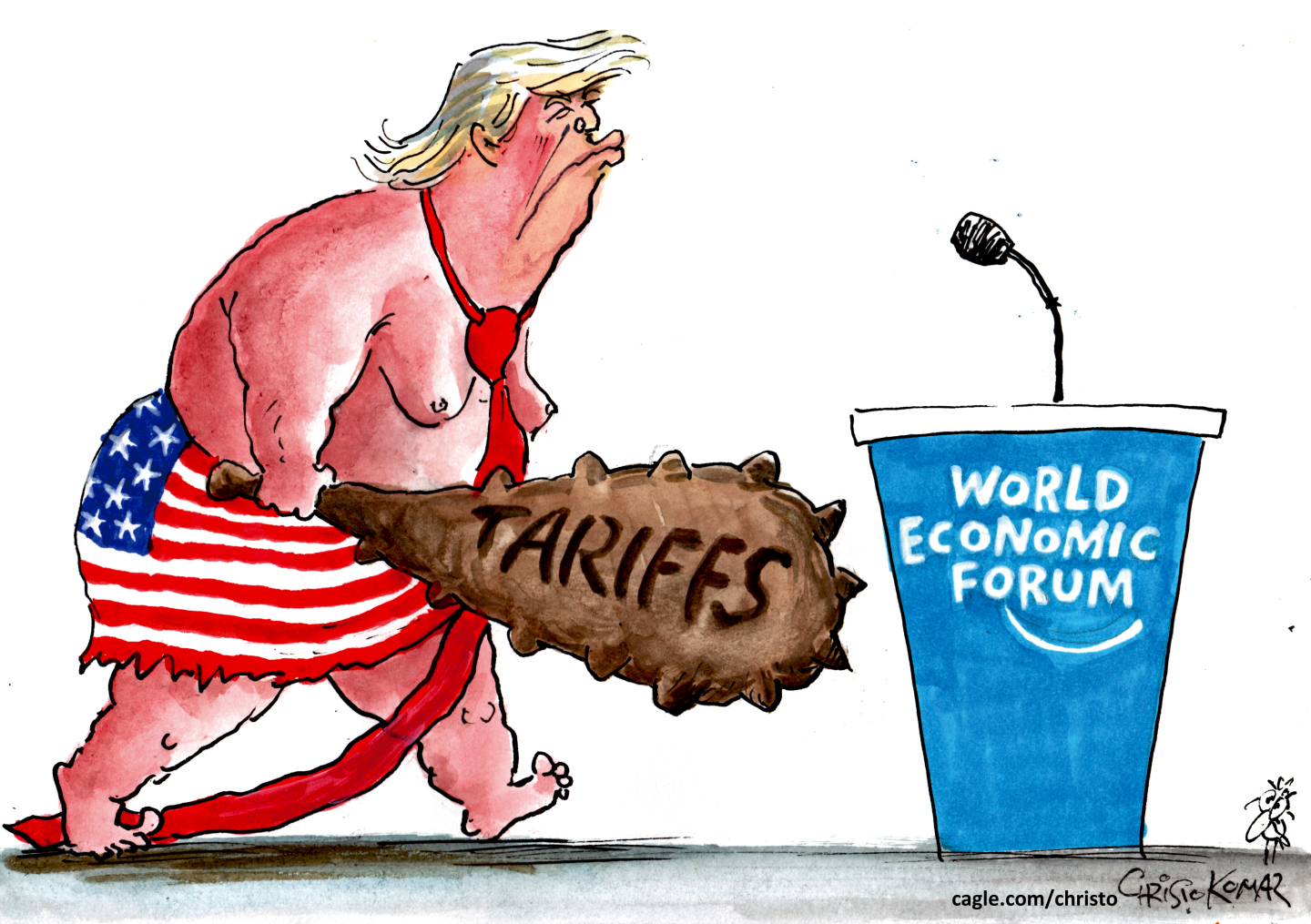Is the middle class to blame for its own economic woes?
The middle class is shrinking and getting poorer, and Americans' decade-long borrowing spree may be as big of a factor as the actions of government and big business

"America's middle class has endured its worst decade in modern history," declares the Pew Research Center in a new report tracking the toll that the Great Recession has taken on this key demographic. "It has shrunk in size, fallen backward in income and wealth, and shed some — but by no means all — of its characteristic faith in the future." The mean net worth of a middle-class family, including the value of a home and retirement accounts, was $129,582 in 2010, down 28 percent from 2001. The largest factor behind the drop was the collapse of the housing market bubble, which had been partly fueled by a middle-class borrowing spree. But when asked who was responsible for their economic woes, 42 percent of respondents placed only a little blame on themselves, while a full 47 percent considered themselves blameless. Sixty-two percent of respondents fingered Congress, and another 54 percent blamed banks and financial institutions. Is it time for the middle class to take a look in the mirror?
Yes. The middle class is partly to blame: "After a pretty lousy decade, middle-class Americans are ready to blame just about everyone for the economic troubles they've faced — except, it seems, themselves," says Jordan Weissmann at The Atlantic. The last 10 years were "defined by an epic housing boom and bust fueled by reckless middle-class borrowing." The government and the big banks, while partly to blame as well, didn't force middle-class Americans "to break out their credit cards or take out exotic mortgages." It's not necessary to "minimize the role of banks and politicians in order to acknowledge that families living on main street played a big role creating our present problems too."
"The middle class blames everyone but the middle class for our economy"
The Week
Escape your echo chamber. Get the facts behind the news, plus analysis from multiple perspectives.

Sign up for The Week's Free Newsletters
From our morning news briefing to a weekly Good News Newsletter, get the best of The Week delivered directly to your inbox.
From our morning news briefing to a weekly Good News Newsletter, get the best of The Week delivered directly to your inbox.
No. Wealth had stagnated before the housing bust: It's easy to "blame the problems of the middle class on the economic crisis of 2008," but the report shows that income had stagnated long before the recession, says Jay Bookman at The Atlanta Journal Constitution. "In 1971, 61 percent of Americans fell into the middle class as defined by Pew. Today [that number] has shrunk to 51 percent, and shows every sign of continuing to shrink." Whether that's a reflection of government policy or "tectonic shifts" in the global economy is difficult to say, but it's clear that "the number of winning tickets" for the American dream "is getting smaller and smaller."
"What a shrinking middle class portends for our future"
And economic inequality is increasing: The Pew study is "really a story about rising income inequality," with the ranks of both the rich and the poor steadily growing since the 1970s, says David Dayen at FireDogLake. "The lessening of leverage in labor negotiations due to the dissolution of unions, the rise of the financial sector, an economic sector that protects and coddles the rich, and tax policy skewed toward the top are all factors." It will "take decades" to reverse this trend, and "the middle class will have to suffer plenty more quiet desperation before any of this gets better."
"Middle class suffering through 'lost decade,' study shows"
A free daily email with the biggest news stories of the day – and the best features from TheWeek.com
-
 Ryanair/SpaceX: could Musk really buy the airline?
Ryanair/SpaceX: could Musk really buy the airline?Talking Point Irish budget carrier has become embroiled in unlikely feud with the world’s wealthiest man
-
 Claudette Colvin: teenage activist who paved the way for Rosa Parks
Claudette Colvin: teenage activist who paved the way for Rosa ParksIn The Spotlight Inspired by the example of 19th century abolitionists, 15-year-old Colvin refused to give up her seat on an Alabama bus
-
 5 contentious cartoons about Donald Trump at Davos
5 contentious cartoons about Donald Trump at DavosCartoons Artists take on weaponized tariffs, a cheeky offering, and more